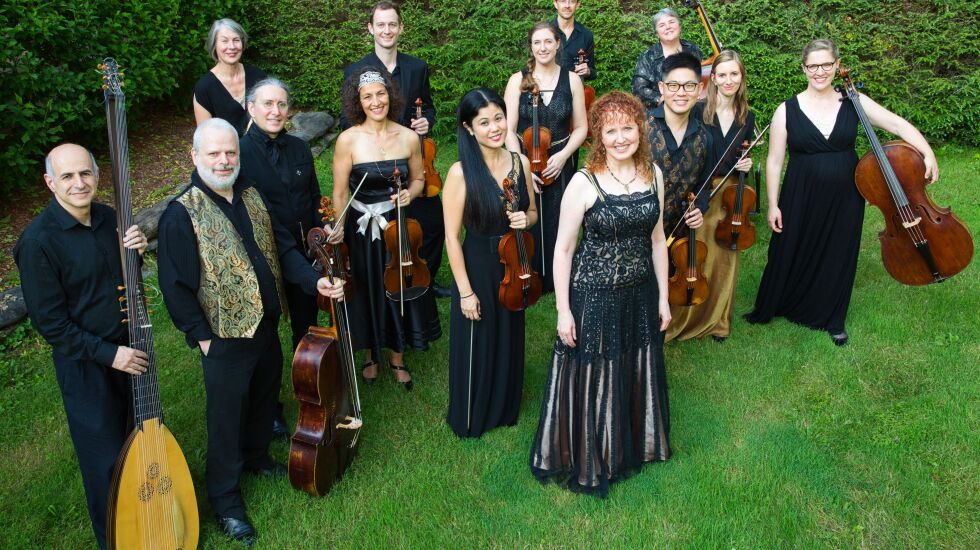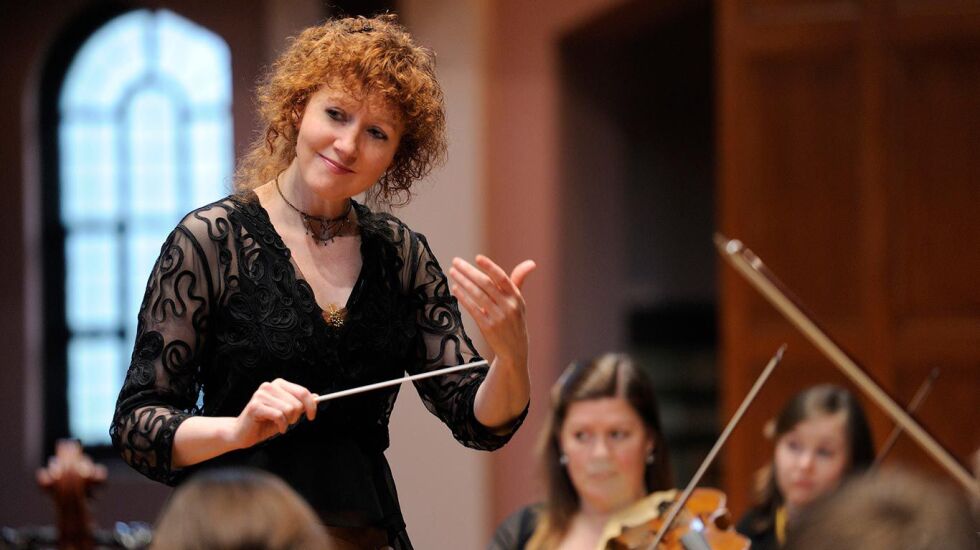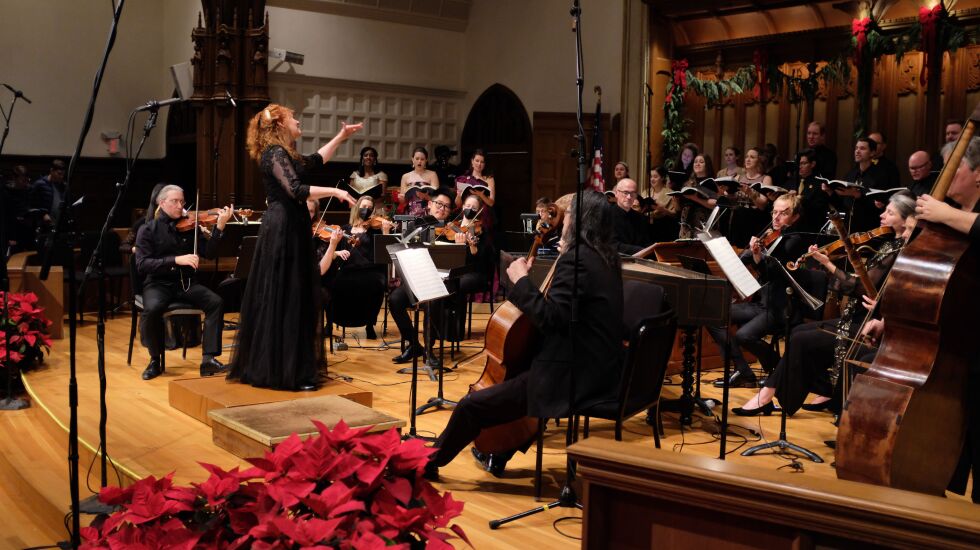
After Apollo’s Fire performed under the auspices of the University of Chicago Presents series in 2016, the Cleveland group was barraged afterward with delighted audience members pressing the group to return soon and often to the Windy City.
Such enthusiasm led to the internationally known baroque orchestra becoming a kind of resident ensemble in Chicago, complete with a fast-growing concert series and an ambitious outreach program in the Matteson School District 162.
“We went away [from the 2016 concert] and wanted to think about how to be a force for good in Chicago and not to be competing with other wonderful groups that are already there,” said Jeannette Sorrell, the ensemble’s founding artistic director.
Apollo’s Fire will open its third annual season in the Chicago area with an Oct. 19 presentation of George Frideric Handel’s “Israel in Egypt” at Northwestern University’s Alice Millar Chapel in Evanston.
The performance of the oratorio, which is based primarily on the biblical Book of Exodus, will feature five soloists, 20 musicians and 27 singers. Because the oratorio runs more than three hours, many groups drop the first act, but this performance will feature an adaptation by Sorrell that shortens each of the three sections and runs a little under two hours.
It is not uncommon for classical groups to tour regularly to the same venue or present an annual concert series in another city. New York’s Chamber Music Society of Lincoln Center, for example, has performed an annual series of concerts at Chicago’s Harris Theater since 2011-12.

But there is little precedent among classical organizations in the United States for the deep kind of involvement by Apollo’s Fire in Chicago. The group has made the city nothing less than a second home.
Indeed, Sorrell’s email signature states: “Apollo’s Fire/Cleveland & Chicago,” and the press release announcing the ensemble’s Windy City Series has a whole section about its commitment to the city. Moreover, Apollo’s Fire Chicago, a kind of legal subsidiary, has incorporated in Illinois with its own 10-member board.
Is Apollo’s Fire planning to ultimately move to Chicago like the then-New York-based Joffrey Ballet did in 1995? Sorrell responds with an emphatic no. “I think we are very committed to Cleveland and the wonderful network of host families and loyal patrons there,” she said. “So, no, we would not ever leave Cleveland.”
Chicago had several period-instrument baroque ensembles in the 1980s and 1990s, including the City Musick, Basically Bach and Chicago Baroque Ensemble, but they all disbanded after 10 years or so. The Baroque Band, founded by British violinist Garry Clarke, rose to take their place in 2007, but it ended in 2016, leaving a void in Chicago’s early-music scene.

“That’s why this concept entered our strategic plan after that debut at the University of Chicago,” Sorrell said, “because we saw that there did seem to be a hunger for early music in Chicago. And yet, there wasn’t a period-instrument ensemble that was active and consistent.”
(Another group, Third Coast Baroque began in 2016 and has offered regular seasons since, but it cancelled its late-summer Beyond Baroque Festival in July, and it has not announced a 2023-24 season.)
In an attempt to be a good musical neighbor, Apollo’s Fire pledged to avoid scheduling conflicts with the 53-year-old Music of the Baroque, which performs similar repertoire but on modern instruments, and it has done cross-promotions with it and other groups when feasible.
After a successful 2022-23 season in which Apollo’s Fire presented three sold-out concerts in Evanston and a fourth in Lakeview, the ensemble wanted to expand and reach out to new and more diverse audiences. “So, for that reason, it’s really important to us to play in the city,” Sorrell said. “It’s a new venture for this year and we’re approaching it with a little bit trepidation.”
The group’s 2023-24 Chicago series features seven concerts mixing baroque masterworks and historical folk music at four area venues, including two performances at the Art Institute of Chicago and two at the Museum Contemporary Art Chicago.
Liza Malamut, who is in her second year as artistic director of Chicago’s Newberry Consort, which focuses on medieval and Renaissance music, does not see Apollo’s Fire as a competitive threat.
“It’s going to be interesting to see the long-term impact on early-music audiences,” she said. “Certainly, the more people who attend early-music concerts the better, and if Apollo’s Fire works together with resident early-music organizations, I suspect our scene will only grow stronger.”
Sorrell does not know what the future holds for Apollo’s Fire in Chicago, but she is filled with optimism. “This is an adventure we are trying for a few years,” she said, “and if doesn’t work, we’ll be fine. But so far, it seemed to go quite well last year, and the big adventure this time will be playing the city and seeing what happens with that.”







